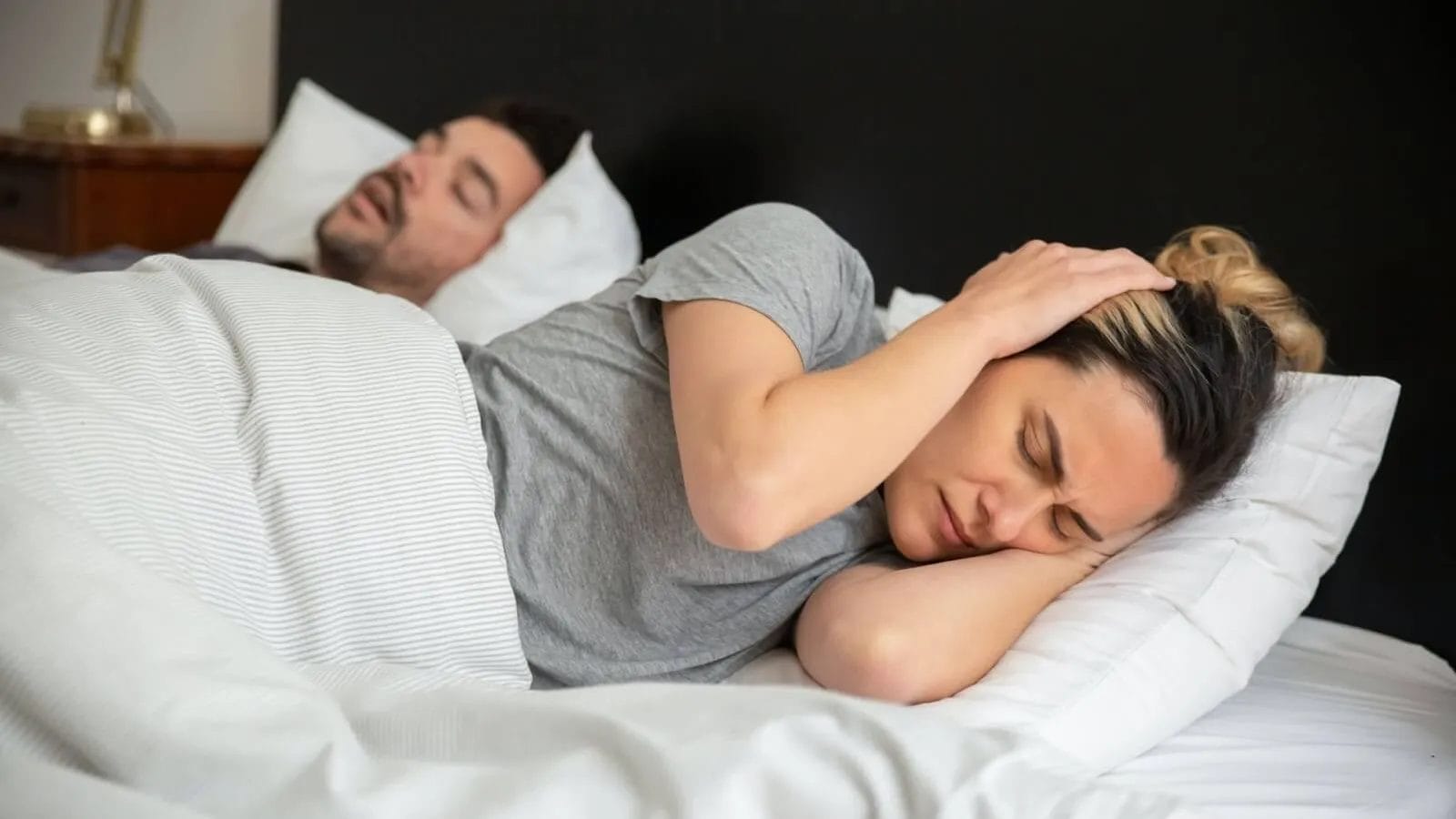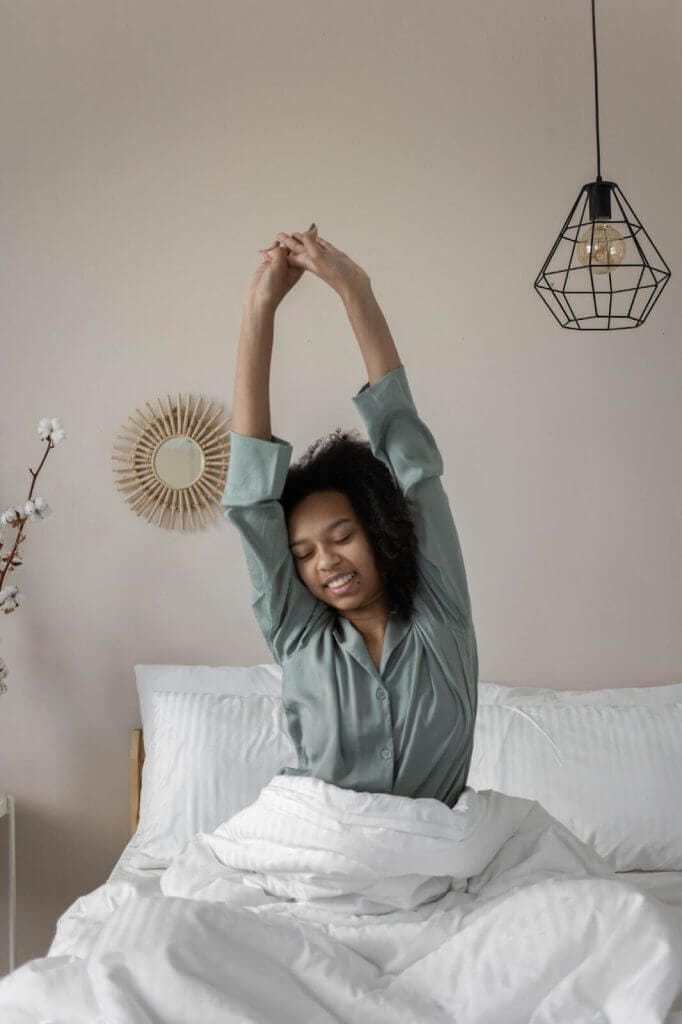The Benefits of Using a Small Sleep Apnea Machine for a Good Night’s Sleep
Sleep apnea is a common sleep disorder that affects millions of people worldwide. It is characterized by pauses in breathing or shallow breaths during sleep, while often accompanied by snoring it can prove more serious as it interrupts the normal sleep cycle and leads to various health complications.
Thankfully, advances in technology have paved the way for effective treatments, one of which is the small sleep apnea machine. This article will discuss the benefits of using a small sleep apnea machine for a good night’s sleep.
Understanding Sleep Apnea
Sleep apnea is a condition that affects millions of people worldwide. It occurs when the muscles in the back of the throat fail to keep the airway open during sleep. This results in repeated episodes of interrupted breathing, causing the person to wake up momentarily or partially throughout the night. These interruptions prevent a person from entering deep sleep and can lead to feelings of excessive tiredness during the day.
While sleep apnea can affect anyone, it is more commonly seen in overweight individuals, as excess weight can put pressure on the airway, making it more difficult to keep it open. Additionally, sleep apnea is more prevalent in men than in women, although women can still be affected.
What is Sleep Apnea?
Sleep apnea is a complex disorder that can have a significant impact on a person’s quality of life. It is important to understand the different types of sleep apnea to better grasp the condition.
The most common type of sleep apnea is obstructive sleep apnea (OSA), which occurs when the muscles in the throat relax and block the airway. This obstruction leads to a decrease in oxygen levels in the blood, triggering the brain to wake up momentarily to restore normal breathing. Central sleep apnea (CSA) is another type, where the brain fails to send the proper signals to the muscles that control breathing. Mixed sleep apnea, as the name suggests, is a combination of both obstructive and central sleep apnea.
It is important to note that sleep apnea can range in severity, with some individuals experiencing only a few interruptions per night, while others may have hundreds. The severity of sleep apnea is typically determined by the number of interruptions per hour, known as the apnea-hypopnea index (AHI).
Common Symptoms of Sleep Apnea
Recognizing the symptoms of sleep apnea is crucial for seeking appropriate treatment. While loud and excessive snoring is often associated with sleep apnea, it is not the only symptom to look out for.
Excessive daytime sleepiness is a common symptom of sleep apnea. Despite getting what may seem like a full night’s sleep, individuals with sleep apnea often wake up feeling tired and unrefreshed. This can lead to difficulties concentrating, irritability, and even depression.
Other symptoms include morning headaches, dry mouth or sore throat upon waking, and frequent awakenings during the night. It is important to note that not everyone with sleep apnea experiences all of these symptoms, and some may not even be aware of their interrupted sleep patterns.
If left untreated, sleep apnea can contribute to serious health issues. Repeated interruptions in breathing can put a strain on the cardiovascular system, leading to high blood pressure, heart disease, and an increased risk of stroke. Sleep apnea has also been linked to diabetes, obesity, and even an increased risk of accidents due to daytime sleepiness.
Sleep apnea is a complex condition that affects many people worldwide. Understanding the symptoms and seeking appropriate treatment is crucial for managing the condition and improving overall quality of life. If you suspect you or a loved one may have sleep apnea, it is important to consult with a healthcare professional for a proper diagnosis and treatment plan.
The Role of Sleep Apnea Machines
How Does a Sleep Apnea Machine Work?
A sleep apnea machine, also known as a continuous positive airway pressure (CPAP) machine, works by delivering a constant stream of pressurized air through a mask. This air pressure acts as a splint, keeping the airway open and preventing pauses in breathing. The machine effectively treats sleep apnea by ensuring a steady supply of oxygen throughout the night.
When a person with sleep apnea uses a CPAP machine, they wear a mask that covers their nose and/or mouth. The machine is connected to the mask via a tube, which delivers the pressurized air. The air pressure is adjusted to the individual’s needs, determined by a sleep specialist or doctor. The machine may also have additional features, such as a humidifier to prevent dryness in the airways.
By delivering a continuous stream of pressurized air, the sleep apnea machine helps to keep the airway open and prevent the collapse or narrowing of the throat that occurs during sleep apnea episodes. This allows the person to breathe normally and get a restful night’s sleep.
Different Types of Sleep Apnea Machines
There are various types of sleep apnea machines available, including the traditional CPAP machine, bilevel positive airway pressure (BiPAP) machines, and automatic positive airway pressure (APAP) machines. Each type of machine serves a similar purpose of treating sleep apnea but may vary in features and delivery of air pressure.
The traditional CPAP machine delivers constant and continuous air pressure throughout the night. It is the most commonly used type of sleep apnea machine and is suitable for most individuals with sleep apnea. The air pressure is set at a fixed level, determined by the sleep specialist or doctor.
BiPAP machines, on the other hand, deliver two different levels of air pressure: a higher pressure during inhalation and a lower pressure during exhalation. This can be beneficial for individuals who have difficulty exhaling against the continuous pressure of a CPAP machine.
APAP machines, also known as auto-adjusting CPAP machines, automatically adjust the air pressure based on the individual’s breathing patterns throughout the night. These machines continuously monitor the person’s breathing and adjust the pressure accordingly, providing a more personalized and comfortable experience.
When choosing a sleep apnea machine, it is important to consult with a sleep specialist or doctor to determine the most suitable type and settings for your specific needs. They will consider factors such as the severity of your sleep apnea, your breathing patterns, and any other underlying health conditions.
Advantages of Small Sleep Apnea Machines
Sleep apnea is a common sleep disorder that affects millions of people worldwide. It is characterized by pauses in breathing or shallow breathing during sleep, leading to poor sleep quality and daytime fatigue. Fortunately, there are various treatment options available, including the use of sleep apnea machines.
Portability and Convenience
Unlike their larger counterparts, small sleep apnea machines offer the advantage of portability and convenience. They are lightweight and compact, making them ideal for travel. Whether you’re going on a weekend getaway or a business trip, having a small sleep apnea machine ensures that you can continue your therapy and enjoy a restful night’s sleep, no matter where you are.
Imagine being able to pack your sleep apnea machine in your carry-on luggage without any hassle. With a small sleep apnea machine, you don’t have to worry about bulky equipment taking up valuable space in your suitcase. You can easily slip it into your bag and have peace of mind knowing that you can maintain your sleep apnea treatment regimen even when you’re away from home.
Furthermore, small sleep apnea machines often come with a travel case or bag, providing additional protection and making it even more convenient to transport. This means you can take your therapy with you wherever you go, ensuring that you never miss a night of quality sleep.
Comfort and Ease of Use
Small sleep apnea machines are designed with comfort in mind. They understand that wearing a mask and using a machine can initially feel strange and uncomfortable, so they strive to make the experience as pleasant as possible.
These machines often feature adjustable straps and cushioned masks to ensure a secure yet comfortable fit throughout the night. The straps can be easily adjusted to fit your head size and shape, providing a personalized and snug fit. The cushioned masks are soft and gentle on your face, preventing any discomfort or irritation that may arise from prolonged use.
In addition to comfort, small sleep apnea machines are also user-friendly and simple to operate. They come with intuitive controls and easy-to-understand instructions, eliminating any barriers that may prevent individuals from adhering to their sleep apnea treatment. Whether you’re a tech-savvy individual or someone who prefers simplicity, these machines cater to all users.
With just a few button presses, you can adjust the settings, such as the pressure level or humidity, to suit your preferences. Some machines even have built-in features like sleep tracking and data storage, allowing you to monitor your progress and share the information with your healthcare provider.
Overall, small sleep apnea machines offer a range of advantages, from their portability and convenience to their comfort and ease of use. They empower individuals with sleep apnea to take control of their treatment and improve their sleep quality, no matter where they are. So, if you’re considering investing in a sleep apnea machine, the compact and user-friendly options available are worth exploring.
Impact on Sleep Quality
Improving Sleep Patterns with a Sleep Apnea Machine
Using a small sleep apnea machine can significantly improve sleep patterns for individuals with sleep apnea. By keeping the airway open and minimizing interruptions in breathing, the machine allows for uninterrupted and restful sleep. This, in turn, helps to restore overall well-being, enhance mood, and improve cognitive function.
The Connection Between Sleep Apnea and Insomnia
Insomnia is a common sleep disorder that can often coexist with sleep apnea. The continuous disturbances caused by sleep apnea can contribute to insomnia symptoms, such as difficulty falling asleep or staying asleep. By effectively treating sleep apnea with a small sleep apnea machine, individuals may experience reduced insomnia symptoms and achieve a more consistent and refreshing night’s sleep.
Health Benefits of Using a Sleep Apnea Machine
Reducing Health Risks Associated with Sleep Apnea
Using a small sleep apnea machine can help reduce the risks associated with untreated sleep apnea. By ensuring a steady and adequate supply of oxygen throughout the night, the machine helps to lower the chances of high blood pressure, heart disease, and stroke. It also alleviates the strain on the cardiovascular system, promoting overall heart health.
Boosting Daytime Energy and Productivity
One of the most immediate benefits of using a small sleep apnea machine is the boost in daytime energy levels. By addressing the underlying sleep apnea, the machine allows individuals to wake up feeling refreshed and rejuvenated, ready to tackle the day ahead with increased focus and productivity.
Conclusion
The benefits of using a small sleep apnea machine for a good night’s sleep are numerous. Especially when other treatments are ineffective, it provides an effective and convenient solution for individuals suffering from sleep apnea, improving sleep quality, reducing health risks, and enhancing overall well-being. With the advancements in technology, small sleep apnea machines offer a portable and comfortable option, ensuring that individuals can maintain their therapy and enjoy the benefits of a restful night’s sleep wherever they go.





